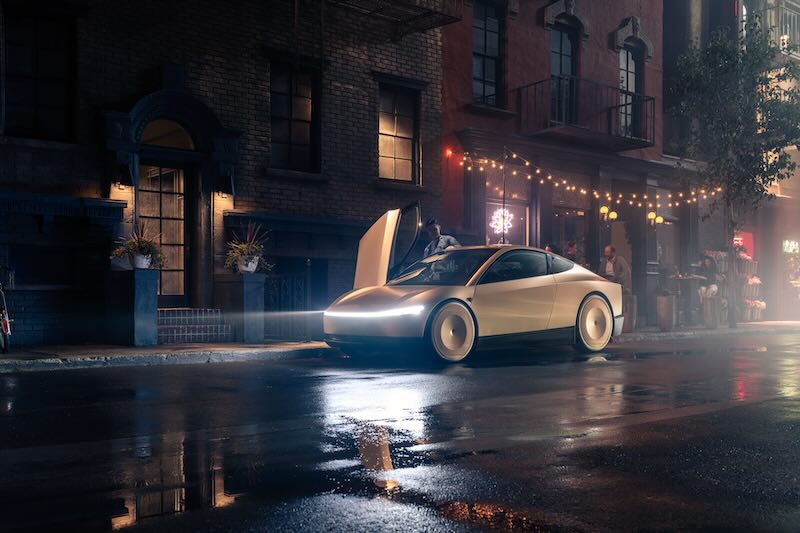Tesla executives have revealed ambitious specs for the upcoming Cybercab robotaxi, showcasing the company’s continued push to redefine transportation. During a conversation with automotive engineering expert Sandy Munro, Tesla’s VP of Vehicle Engineering Lars Moravy and SVP of Design Franz von Holzhausen shared insights into what might be the most energy-efficient electric vehicle ever produced.
The Cybercab, designed as a purpose-built autonomous taxi, will reportedly achieve approximately 300 miles of real-world range from a battery pack smaller than 50kWh. This translates to roughly 6 miles per kilowatt-hour—setting a new benchmark for EV efficiency that no current production vehicle can match.
“This vehicle’s body shape is truly unique. The rear end is significantly slimmer than the front, and its aerodynamic design is a key factor in maximizing range with a smaller battery pack,” Franz explained during the discussion.
The Cybercab features a streamlined two-seat configuration with enclosed wheel hubs to reduce drag. Unlike traditional vehicles, Tesla has approached the Cybercab with efficiency as a primary design constraint rather than an afterthought.
Lars provided technical details about the Cybercab’s construction, highlighting Tesla’s continued advancement in manufacturing techniques.
“We have a big rear casting, a big front casting. We have two hot stamped door rings that will be laser welded together,” Lars noted. “The castings aren’t even gonna be painted on this. We’ve done work with our materials team, we got corrosion under control. The only area you are going to see some paint is the hot stamped door rings.”
New manufacturing method called the “unboxed process”. According to comments from Tesla’s head of vehicle engineering, Lars Moravy, this unboxed technique will revolutionize how Tesla builds cars in the future.
This approach continues Tesla’s push toward simplified manufacturing with fewer parts—a strategy first implemented with the Model Y’s large castings.
Tesla isn’t wasting time bringing the Cybercab to reality. According to executives, production equipment for the Cybercab is “starting to be installed in Giga Texas already,” with the first prototype builds expected this summer.
Tesla plans to launch its ridehailing network in January 2026 “if not sooner,” suggesting an aggressive timeline for bringing autonomous taxis to market.
Six Tesla Cybercabs are reportedly already operating around Tesla’s Giga Texas factory, likely for testing and validation purposes as the company prepares for larger-scale production.
If Tesla delivers on these efficiency promises, Cybercab would require significantly less battery material than competing EVs while delivering comparable range—potentially changing the economics of electric vehicles while the industry continues to battle battery supply constraints.
When the Cybercab finally picks up its first passengers, we’ll see if Tesla can truly “cab-italize” on its efficiency advantages.
Related Post
Tesla Cortex 2.0: Second $5B+ Computing Cluster Under Construction at Giga Texas
Tesla Robotaxi CyberCab Wireless Charging Speed of 25kW: The Future of Urban Mobility
Tesla Robotaxi vs UBER: Former Executive Reveals Why CyberCab Will Transform Ride-Hailing
